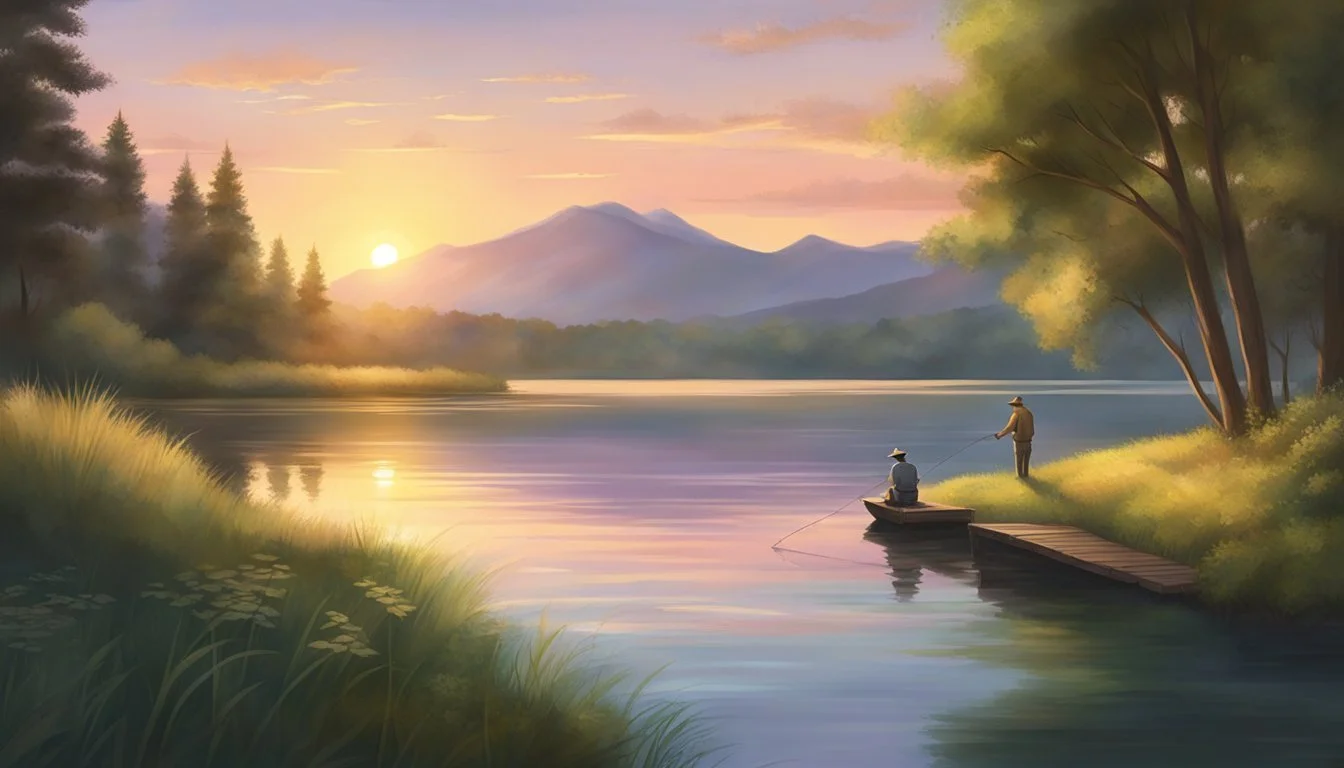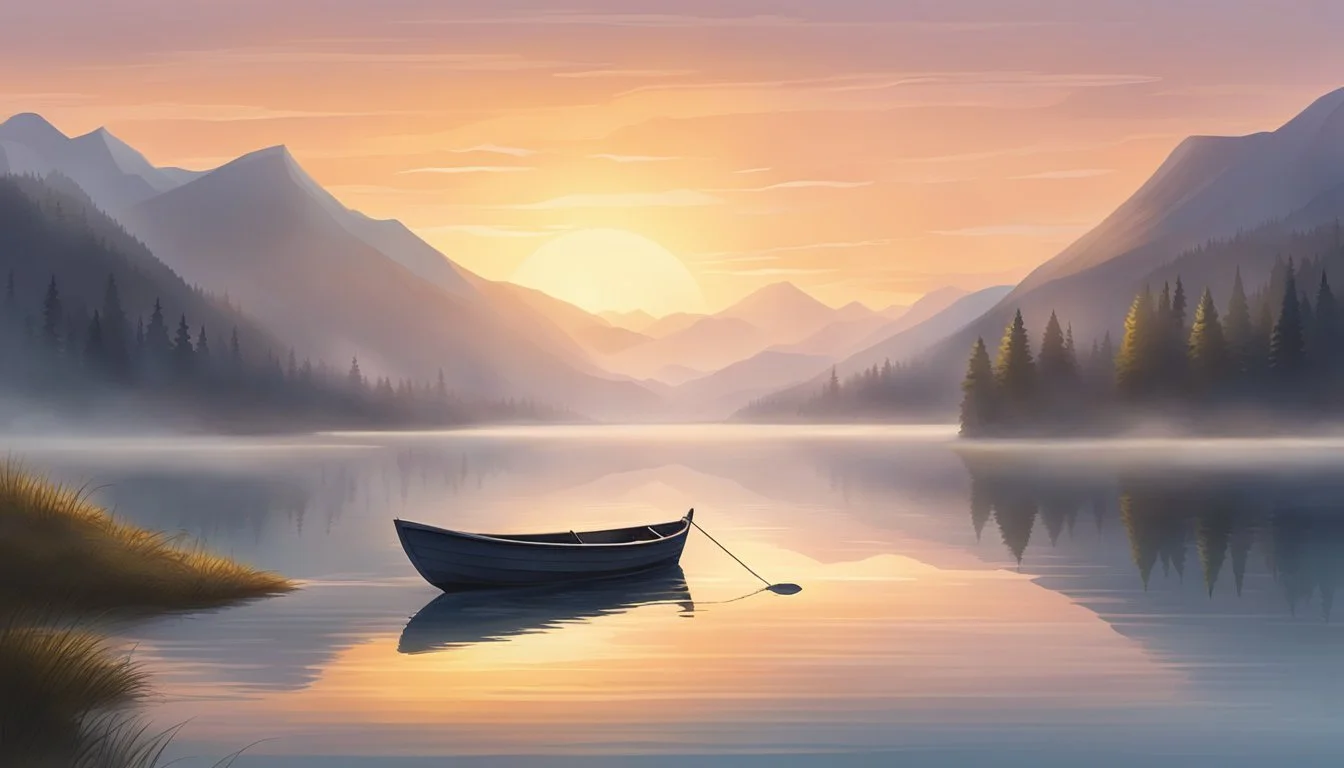8 Documentaries Every Fisherman Should See
Essential Films for Anglers
Fishing documentaries offer a unique window into the world of angling, showcasing everything from extreme river adventures to the quiet art of fly fishing. These films capture the passion, skill, and challenges that fishermen face in their pursuit of aquatic quarry. They provide valuable insights into different fishing techniques, locations, and the conservation issues surrounding various fish species.
For both novice anglers and seasoned pros, fishing documentaries serve as a source of inspiration and education. They often feature stunning cinematography of marine and freshwater environments, as well as compelling stories of the people who dedicate their lives to fishing. From commercial deep-sea trawlers to solitary fly fishermen in pristine rivers, these films explore the diverse facets of fishing culture around the globe.
1) 'Jiro Dreams of Sushi' - David Gelb (2011)
'Jiro Dreams of Sushi' profiles Jiro Ono, an 85-year-old sushi master and owner of Sukiyabashi Jiro, a renowned sushi restaurant in Tokyo. The film showcases Ono's relentless pursuit of perfection in his craft.
Gelb's documentary provides an intimate look at the daily routines and philosophy of one of the world's most celebrated sushi chefs. It explores the dedication required to achieve mastery in the culinary arts.
The film captures the meticulous preparation techniques and attention to detail that go into creating each piece of sushi. Viewers witness the years of training and discipline necessary to reach the highest levels of sushi-making.
'Jiro Dreams of Sushi' offers valuable insights for fishermen about the importance of quality ingredients and respect for marine life. It emphasizes the connection between the ocean's resources and the final product served to customers.
The documentary also touches on themes of legacy and succession, as Jiro prepares his sons to continue his work. This aspect may resonate with fishermen considering the future of their trade.
More information about 'Jiro Dreams of Sushi'
2) 'Blue Planet II' - BBC Studios (2017)
'Blue Planet II' is a groundbreaking nature documentary series that explores the wonders of marine life. Produced by BBC Studios, it offers fishermen an unparalleled look into the underwater world they interact with.
The series uses cutting-edge technology to capture extraordinary footage of aquatic creatures and their behaviors. From the intense heat of tropical waters to the frozen polar regions, 'Blue Planet II' reveals new discoveries about ocean life.
Narrated by Sir David Attenborough, the documentary showcases a wide range of marine environments. It features fascinating segments on coral reefs, the deep sea, and the open ocean, providing insights into fish species and their ecosystems.
'Blue Planet II' also highlights the impact of human activities on marine life. This aspect of the series can be particularly valuable for fishermen, offering a broader perspective on ocean conservation and sustainable fishing practices.
More information on 'Blue Planet II'
3) 'The River Why' - Matt Leutwyler (2010)
'The River Why' is a drama film directed by Matthew Leutwyler. Based on the 1983 novel by David James Duncan, it tells the story of a young man who leaves his family to pursue a solitary life of fly-fishing.
The film stars Zach Gilford as the protagonist, with William Hurt and Amber Heard in supporting roles. It explores themes of self-discovery and finding one's place in the world through the lens of fishing.
While not strictly a documentary, 'The River Why' offers valuable insights into fly-fishing culture and techniques. The film showcases beautiful river scenery and depicts the meditative aspects of the sport.
'The River Why' was screened at various film festivals and later broadcast on Showtime. It has since been used to support fish and river conservation efforts, highlighting the connection between fishing and environmental stewardship.
4) 'Blackfish' - Gabriela Cowperthwaite (2013)
'Blackfish' is a thought-provoking documentary that explores the controversial practice of keeping orcas in captivity. Directed by Gabriela Cowperthwaite, the film focuses on Tilikum, a captive orca involved in the deaths of three people.
The documentary examines the complex issues surrounding marine parks and their treatment of killer whales. It features interviews with former SeaWorld trainers and marine biologists, providing insights into the lives of these intelligent creatures in captivity.
'Blackfish' raises important questions about the ethics of using orcas for entertainment purposes. The film sheds light on the potential psychological and physical impacts of confinement on these highly social animals.
Cowperthwaite's work sparked widespread public debate and led to significant changes in the marine park industry. The documentary's release resulted in decreased attendance at SeaWorld parks and prompted the company to phase out its orca breeding program.
For fishermen and marine enthusiasts, 'Blackfish' offers a compelling look at the relationship between humans and marine life. It encourages viewers to consider the broader implications of our interactions with ocean ecosystems.
5) 'The End of the Line' - Rupert Murray (2009)
'The End of the Line' examines the devastating effects of overfishing on the world's oceans. Directed by Rupert Murray, this eye-opening documentary explores the consequences of unsustainable fishing practices.
The film highlights the imminent extinction of bluefin tuna, driven by increasing demand for sushi in Western countries. It also delves into the impact on marine ecosystems, including the overpopulation of jellyfish.
Murray's work features interviews with experts and stunning underwater footage. The documentary presents a compelling case for the urgent need to preserve ocean ecosystems.
'The End of the Line' serves as a wake-up call for fishermen and consumers alike. It emphasizes the importance of sustainable fishing practices and responsible consumption of seafood.
The film offers a balanced perspective, showcasing both the challenges faced by the fishing industry and the environmental concerns. It provides viewers with actionable steps to help protect marine life and ensure the future of fishing.
More information about 'The End of the Line'
6) 'Chasing Coral' - Jeff Orlowski (2017)
'Chasing Coral' is a groundbreaking documentary that explores the disappearance of coral reefs worldwide. Director Jeff Orlowski leads a team of divers, photographers, and scientists on an underwater expedition to document this critical environmental issue.
The film captures stunning timelapses of coral bleaching events, showcasing the devastating effects of rising ocean temperatures. Orlowski and his crew developed innovative underwater camera systems to record these rarely seen phenomena.
'Chasing Coral' not only highlights the beauty of coral ecosystems but also emphasizes their vital importance to marine life. It serves as a stark warning about the consequences of climate change on our oceans.
This visually captivating documentary combines scientific research with powerful storytelling. It aims to raise awareness about coral reef conservation and inspire action to protect these fragile underwater habitats.
For fishermen, 'Chasing Coral' offers valuable insights into the health of marine ecosystems. It underscores the interconnectedness of all ocean life and the potential impact on fish populations.
More information on 'Chasing Coral'
7) 'Racing Extinction' - Louie Psihoyos (2015)
'Racing Extinction' is a documentary that explores the ongoing mass extinction of species caused by human activities. Directed by Louie Psihoyos, the film follows a team of activists and scientists as they work to document and raise awareness about this critical issue.
The documentary employs innovative techniques to capture rarely-seen footage of endangered species. It showcases the efforts of researchers, environmentalists, and artists who are striving to prevent further loss of biodiversity.
'Racing Extinction' highlights the impact of climate change, poaching, and habitat destruction on various species. The film also examines the role of human consumption patterns in driving extinction rates.
Psihoyos, known for his Oscar-winning documentary 'The Cove', brings his signature blend of investigative journalism and cinematic storytelling to this project. The film received critical acclaim and was nominated for an Academy Award for Best Original Song.
For anglers, 'Racing Extinction' offers a sobering look at the challenges facing marine ecosystems. It underscores the importance of sustainable fishing practices and conservation efforts in preserving aquatic biodiversity for future generations.
8) 'The Cove' - Louie Psihoyos (2009)
'The Cove' exposes the hidden dolphin hunting practices in Taiji, Japan. Directed by Louie Psihoyos, this documentary sheds light on the annual capture and slaughter of dolphins in a secluded cove.
The film follows a team of activists, including former dolphin trainer Ric O'Barry, as they use covert techniques to document the hunting activities. Their mission is to raise awareness about the ethical and environmental implications of these practices.
'The Cove' presents compelling footage and arguments against dolphin captivity and consumption. It highlights concerns about mercury levels in dolphin meat and the impact on marine ecosystems.
The documentary won the Academy Award for Best Documentary Feature in 2010. It sparked international discussions about marine conservation and animal rights.
For fishermen, 'The Cove' offers a thought-provoking look at the complexities of marine resource management and the global impact of local fishing practices.
More information on 'The Cove'
The Impact of Fishing Documentaries
Fishing documentaries have transformed public perception and industry practices. They illuminate critical issues facing marine ecosystems while educating viewers about sustainable fishing methods.
Cultural and Educational Influence
Fishing documentaries shape cultural attitudes toward ocean conservation. They bring distant underwater worlds into living rooms, fostering appreciation for marine life. These films often highlight traditional fishing practices, preserving cultural heritage.
Educational institutions use fishing documentaries as teaching tools. Students gain insights into marine biology, ecology, and environmental science through vivid imagery and expert commentary. The films spark discussions on ethical fishing practices and responsible consumption.
Documentaries also influence consumer behavior. Viewers become more conscious of their seafood choices, often opting for sustainably sourced options. This shift in demand encourages fishing industries to adopt more responsible practices.
Raising Environmental Awareness
Fishing documentaries expose the devastating effects of overfishing on marine ecosystems. They showcase depleted fish stocks, damaged habitats, and the broader impact on ocean biodiversity. Viewers learn about bycatch issues and the unintended consequences of certain fishing methods.
These films often present scientific data in accessible ways. They illustrate complex concepts like ocean acidification and its effects on fish populations. By connecting environmental issues to everyday life, documentaries motivate viewers to take action.
Many fishing documentaries highlight success stories in marine conservation. They feature innovative sustainable fishing techniques and effective marine protected areas. These positive examples inspire hope and demonstrate that change is possible through collective effort.
Cinematic Techniques in Fishing Documentaries
Fishing documentaries employ various cinematic techniques to captivate audiences and bring the underwater world to life. These methods enhance the viewing experience and provide unique perspectives on fishing and marine environments.
Visual Storytelling
Fishing documentaries often use wide-angle shots to showcase the stunning landscapes where fishing takes place. These panoramic views set the scene and highlight the natural beauty of rivers, lakes, and oceans. Filmmakers also incorporate slow-motion sequences to capture the graceful arcs of casting lines and the splashing of fish as they're reeled in.
Time-lapse photography is frequently employed to depict changing weather conditions or the passage of time during long fishing expeditions. Close-up shots of fishing gear, bait, and lures provide detail and create visual interest.
Drones have become increasingly popular in fishing documentaries, offering sweeping aerial views of boats, shorelines, and vast bodies of water. These shots provide context and scale, revealing the vastness of fishing locations.
Use of Underwater Filming
Underwater cameras have revolutionized fishing documentaries by allowing viewers to see beneath the surface. Specialized waterproof housings protect cameras, enabling filmmakers to capture clear footage in various aquatic environments.
Remotely operated vehicles (ROVs) equipped with cameras can explore deeper waters, revealing fish behavior and habitats that would otherwise remain unseen. These devices provide unique angles and perspectives on underwater ecosystems.
Underwater lighting techniques are crucial for illuminating the often murky depths. Filmmakers use powerful LED lights to bring out the vibrant colors of marine life and create dramatic underwater scenes.
Split-screen techniques are sometimes employed to show simultaneous above and below water action, giving viewers a comprehensive look at the fishing process from multiple angles.
The Role of Narration and Music
Narration and music play crucial roles in fishing documentaries, enhancing the viewer's experience and emotional connection to the subject matter. A well-crafted narration provides context, explains complex concepts, and guides the audience through the story.
Voice-over narration, often performed by professional actors or the filmmakers themselves, can add depth and authority to the documentary. For example, Daryl Granger wrote and performed the narration for his film about Port Dover's commercial fishing fleet.
Music sets the mood and pace of the documentary. It can create tension during challenging fishing scenes or evoke a sense of tranquility when showcasing serene water landscapes.
Sound design, including ambient noises of waves, boat engines, and wildlife, further immerses viewers in the fishing environment. These audio elements work together to create a rich, multisensory experience.
Many fishing documentaries use a combination of narration, music, and natural sounds to tell their stories effectively. This audio mix helps maintain viewer engagement and reinforces key themes throughout the film.
Filmmakers often carefully select music that reflects the cultural and geographical context of the fishing locations featured in their documentaries. This attention to detail enhances the authenticity of the viewing experience.







